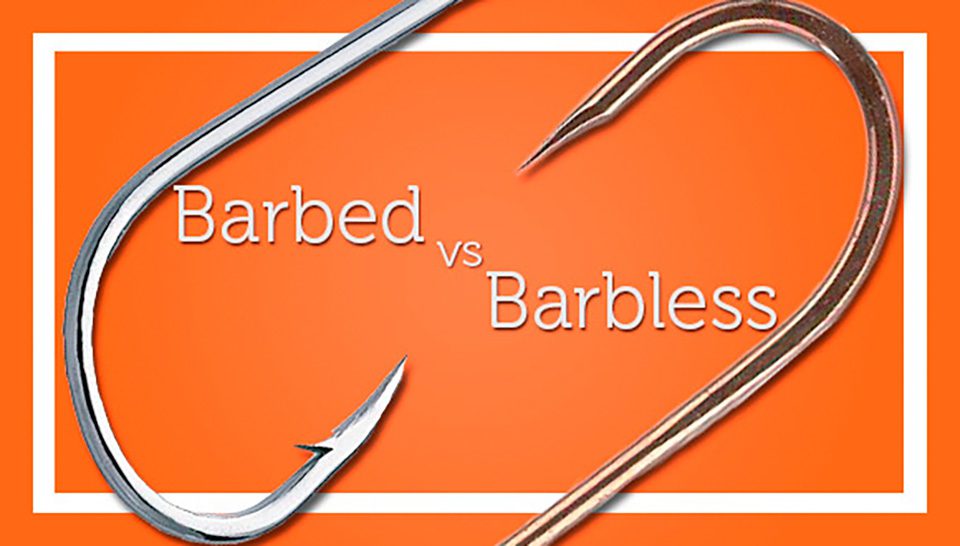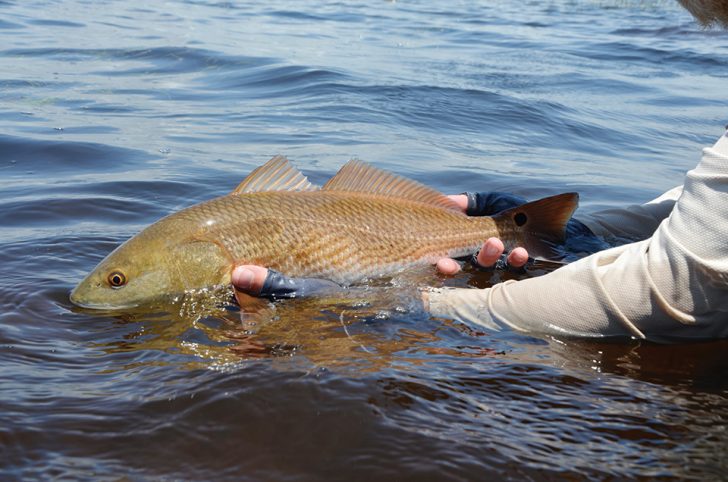By John Saporito
There is a sharp divide among today’s fishermen between those who fish barbless hooks and those who fish traditional hooks with barbs. We all know the barb is meant to keep a hook in the fish’s mouth, theoretically preventing its escape. While there is merit to this, it is ultimately the job of the angler to keep a fish hooked.
Barbless hooks have legitimate benefits for both angler and quarry. First off, they cause less damage to the fish and facilitate a quicker hook removal, which reduces the mortality rate among released fish. Second, they are safer for people. If someone is accidentally hooked while fishing, a barbless hook can simply be backed out.
While most anglers are aware of these things, what many fishermen may not know is that using barbless hooks will actually improve your hook-up ratio. The narrow diameter of a hook point without a barb makes penetrating the mouth of a fish much easier. This is especially true for gamefish with hard mouths. Many fish are lost because the hook simply doesn’t get buried deep enough on the hookset. Braided lines and graphite rods help, but to really make the process efficient, ditch the barb and watch your numbers grow.
You don’t have to purchase special hooks to fish barbless. The barb on any hook may be removed in a number of ways. Barbs can be filed down with a rasp or grinding stone, they can be pinched down with pliers, or they can be crushed with a crimping tool. I like to grind them down with a power drill and a grinding bit made for a rotary tool. This is quick to do and you don’t have to worry about compromising the integrity of the hook, which can happen when you apply too much pressure with pliers. However you choose to do it, be sure to wear proper eye protection and a mask so you don’t get hit with or ingest any small particles or shrapnel.
Whether bait fishing or using lures, a barbless hook will give you a better chance of a complete hook set. As long as you keep a bend in the rod—which you should be doing anyway when you are fighting a fish—you will seldom lose a fish because of a barbless hook. Perhaps the only times barbs offer a true benefit for the angler are in the presence of big waves, which can cause sudden slack in the line, or with species that tend to leap or shake their heads.
Regardless, I’ve found that in most fishing circumstances barbless hooks offer me a great advantage in converting more strikes into landed fish.
The hardest part about going barbless is making the switch. Many anglers are resistant to change, but it pays to be open to experimentation. Give barbless hooks a shot; you have nothing to lose and many fish to gain.
John Saporito is a lifelong fisherman and student of the seas. Visit him online at guerillaangling.com.

